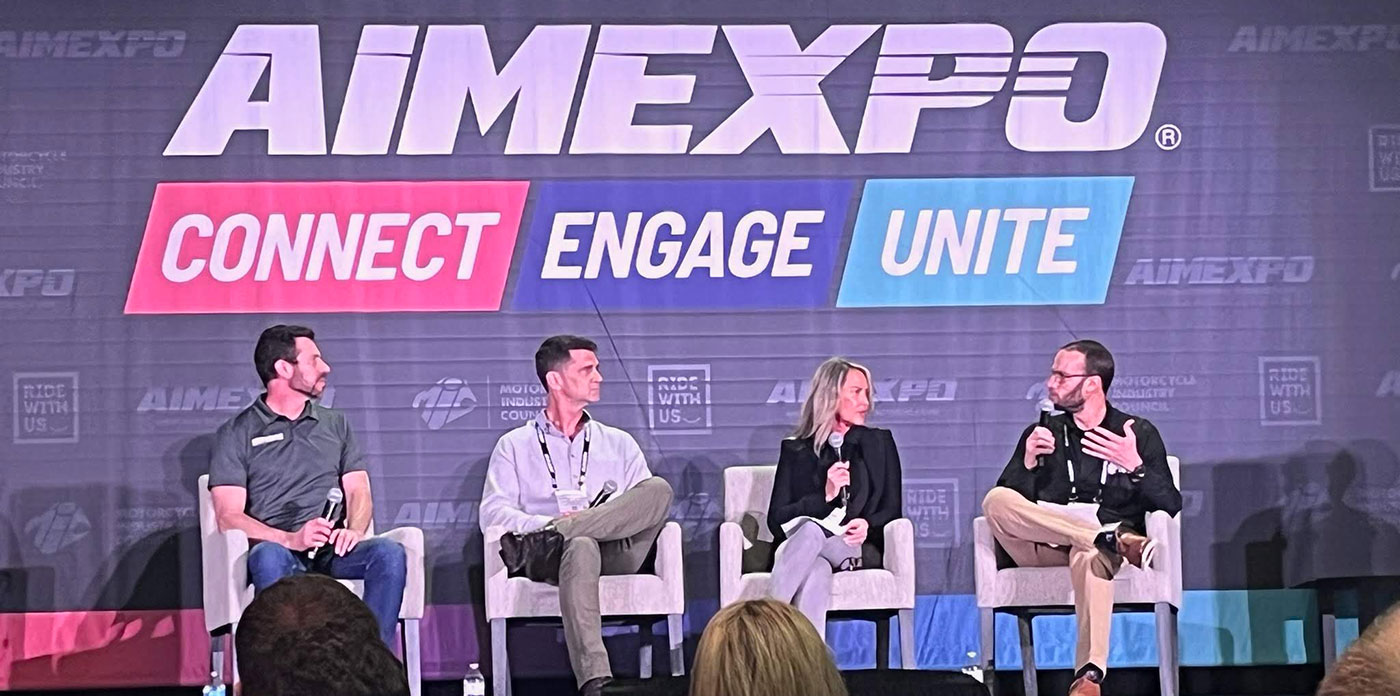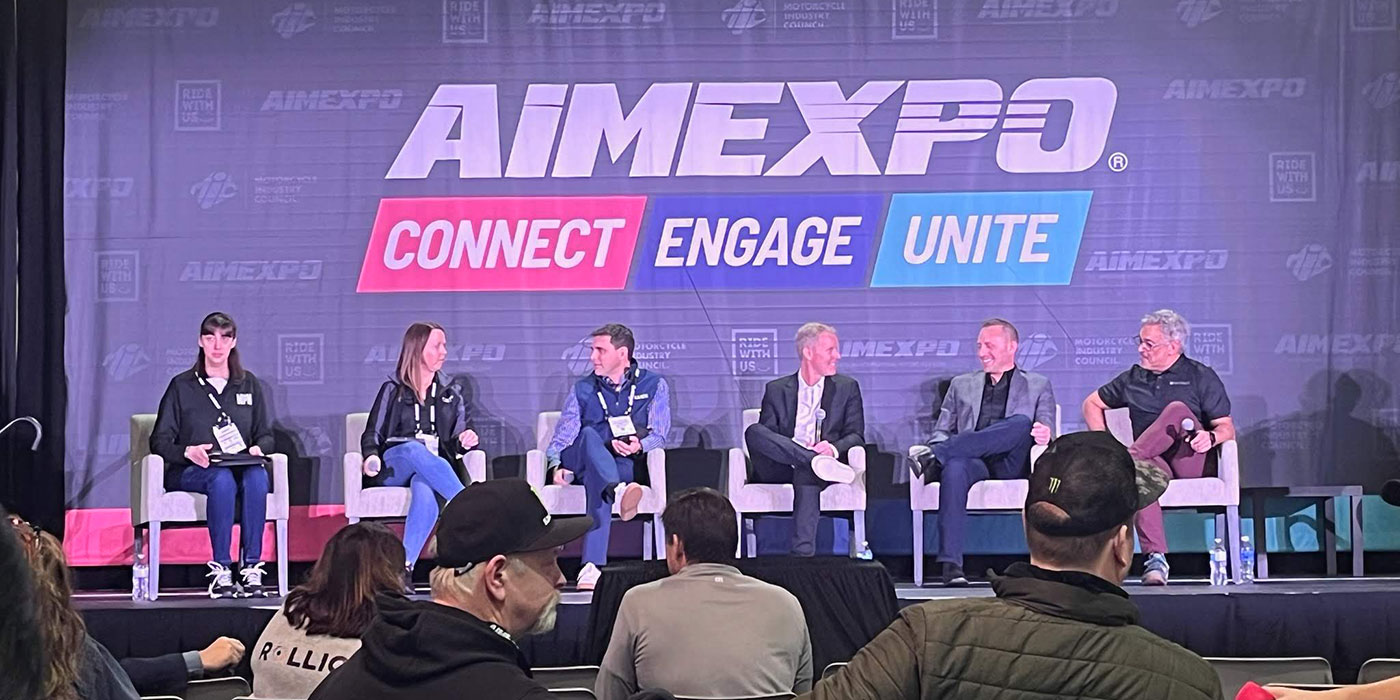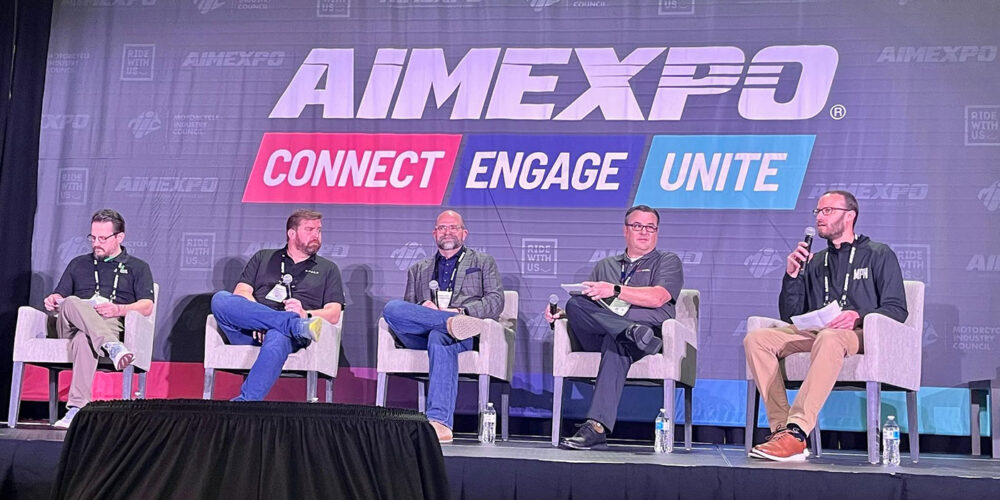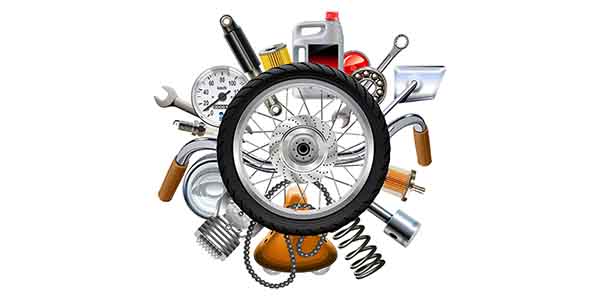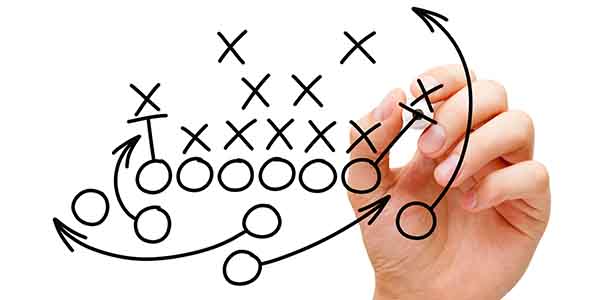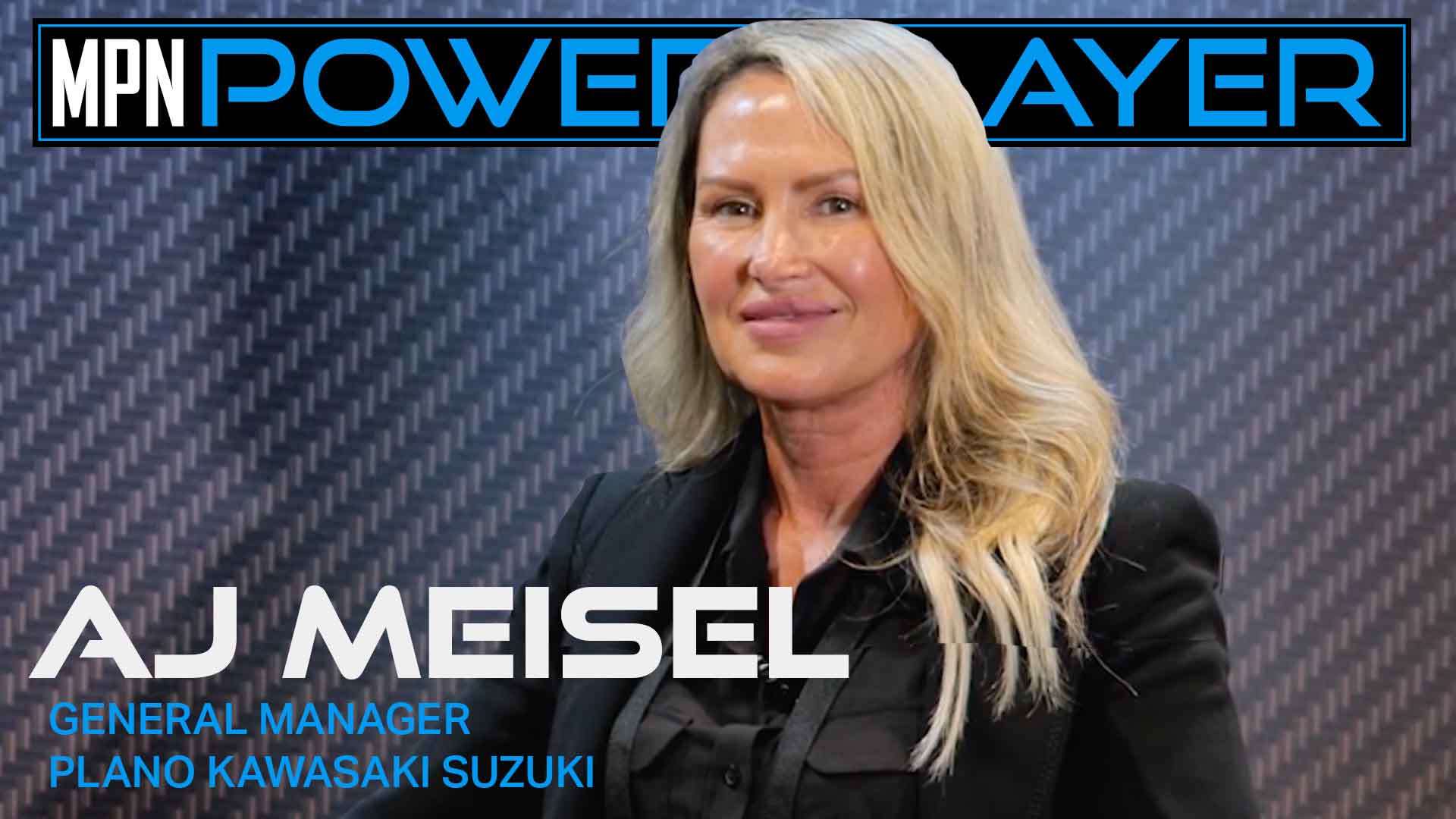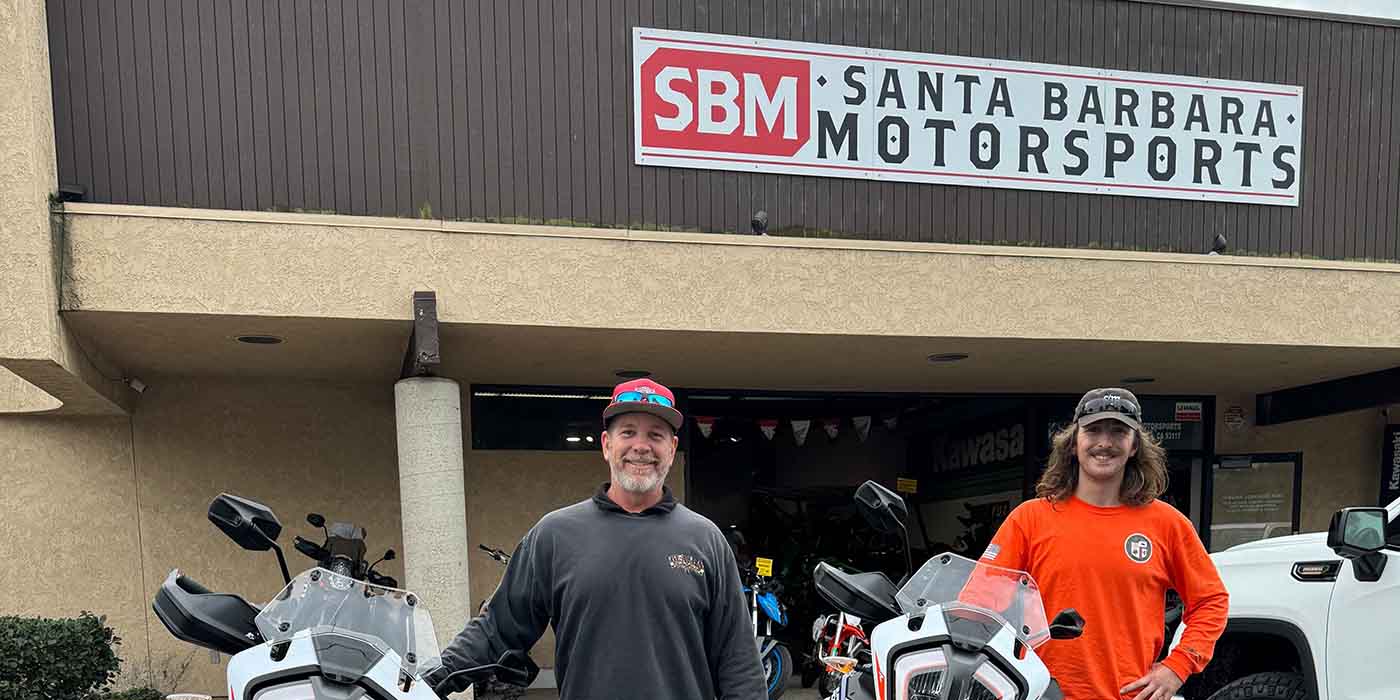An employee says, “I want to work somewhere else.” How would you respond? If you’re like many managers, you’d explode in a tirade: “Don’t let the door hit you on the way out,” or the old standard “here’s your hat, what’s your hurry?” and some, well, Colleen just won’t let me print in MPN!
Dave Stock and Dave Herman, the dealer principal and general manager, respectively, of Stock’s Harley-Davidson in Manitowoc, Wisc., had to deal with this very situation when business manager Jayme Presyl said, “I want to work somewhere else.”
“We told her sure,” said Herman. “Go ahead and give it a try, and if it doesn’t work out your job will be right here waiting for you.”
Huh? This flies in the face of all the Donald Trump-esque management techniques we’ve been taught. Shouldn’t we be pointing our finger, shouting “You can’t leave,” and evoking the two-word, patent-pending, Trump-trademark-attempted phrase, “You’re fired!”
When I first heard this remarkable dealer response, I couldn’t help but draw parallels to the Amish practice of “rumspringa,” the Pennsylvania Dutch word for running around. This is the tradition of allowing Amish teenagers to explore the outside world and decide for themselves whether or not they want to pursue the Amish faith.
This practice has been publicized in work including the documentary Devil’s Playground by Lucy Walker, Tom Shachtman’s Rumspringa, To Be or Not Be Amish and even a recent documentary on ABC’s Primetime: The Outsiders.
The practice lets Amish teenagers explore a world previously forbidden to them. They go to the mall, drink, use drugs and even listen to hip-hop, all as part of this experience.
And return they do. Statistics vary, but Thomas Meyers, a sociology professor at Goshen College states that more than 80 percent of Amish kids eventually do return to the fold. Lucy Walker of the aforementioned documentary says the number is more like 85 to 90 percent.
But why do they return? There are many reasons. Social pressure, economic concerns and family relationships all come into play. In my opinion, the common denominator is the fact they have experienced what was previously unknown to them.
This, in my opinion, is exactly what happened with Jayme Presyl at Stock’s Harley-Davidson. Jayme took got a job working at a local credit union. She lasted one day.
“I had a strong feeling,” says Herrmann, “that if we could only let Jayme experience the other side for awhile, she would see that it probably would not compare to the Stock’s Harley-Davidson’s ‘we make dreams happen’ attitude.”
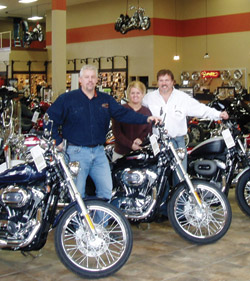
“It just wasn’t the same,” says Presyl. “We had to dress up, coworkers didn’t joke around and the customers, nice people, but they weren’t as fun as here at the dealership.”
Jayme went back to the dealership and, working closely with Stock and Hermann, crafted a plan to keep herself interested and growing at the dealership.
They hired a part-time F&I person to help Jayme out and ease some of the more mundane tasks, and added advertising to her duties beyond the finance office.
What was the result? Jayme is having a blast working in both areas, and discovered that advertising was just the thing to give her a new challenge. This truly is an example of a win for the dealership, a win for Jayme and a win for their customers.
“I’m more loyal to the dealership now than ever,” says Presyl. “I feel like I can talk to my bosses about any situation, and that they truly listen. At Stock’s we’re not just a number or just another employee; We are people.”
In this instance, Dave Stock and Dave Herrmann have taken a very compelling (and fairly radical) management approach to becoming an employer of choice.
How Can You Be An Employer Of Choice?
Take a tip from Freddy. No, not Freddy Krueger of horror flick fame, rather management consultant Frederick Hertzberg. The New York Times called Hertzberg, who died in 2000, “one of the most influential management teachers and consultants of the post-war era…”
The good professor’s research produced the Two Factor Theory. Hertzberg broke the work world into two areas — motivation factors and hygiene factors.
His motivation factors include status, opportunity, recognition, responsibility, meaningful and interesting work, personal achievement and wealth. His hygiene factors are the administration of company policies, fair compensation, interpersonal relations, working conditions and the feeling of job security.
Job Enlargement
Stock’s Harley-Davidson enlarged Jayme Presyl’s job. They were able to off-load some of the lower-level tasks of the F&I office. This enabled them to leverage Jayme for higher-level work in terms of advertising and marketing for the dealership. This enabled her to grow, and it allowed another person in the dealership to learn the mechanics of the F&I office. This then increases the dealership’s “bench strength.”
A great way to do this is on a project basis. If you have a high-potential person in your dealership whom you think is getting bored, have them:
- Put together an open house or customer appreciation event
- Create an internal series of customer service training workshops
- Participate in local business associations
- Make presentations about your dealership to outside groups
- Create and execute customer focus groups designed to improve your dealership
- Work with other department members to analyze and improve some specific aspect of your business like product returns, high-traffic customer wait times or phone responsiveness
Our dealerships don’t have unlimited levels to which people can climb. Sometimes we have to grow sideways; However, this potential is unlimited.
Job Rotation
There are really two components here. First is the idea of literally switching jobs. You’ve got it, let the sales manager be the service manager, the service manager gets to be the sales manager, parts and gear can swap. And just don’t leave it to the managers, let salespeople rotate as well.
You’re not going to have a motorcycle salesperson with no technical expertise or training putting bikes on the rack and swapping out steering head bearings, but for many other areas this is a viable idea.
Rotation enables others to see the challenges in different positions, and they may find ways to improve processes. It also gives people an understanding of the challenges of the other position, enabling most employees to be more tolerant and considerate of others. Cross-trained employees strengthen the dealership; More people can help during busy times or when people are sick or leave the store.
Wanna Hear More From Mark?
listen to the podcast:
Performance Based Selling
Additionally, you may find a diamond in the rough. We worked with one dealer who let a technician try selling bikes. He was a good tech. He is now a great salesperson.
The other component is to take the undesired tasks, like keeping showroom bikes clean, and rotating them through employees. Every week, the grunt work is a different person’s responsibility.
Does Money Matter?
One of my favorite memories was speaking with the then CEO of Harley-Davidson Rich Teerlink, who told me, “Mark, if someone tells you they’re not interested in money, watch ’em, because they’ll lie about other things too!”
Rich may not have authored that idea, but it sure makes sense. Of course money matters. It may not be the primary driver of long-term satisfaction, but a person needs to be able to pay their bills and have discretionary dollars to invest and have fun.
In a conversation with Fran O’Hagan, the president of Pied Piper Management Company (they authored the prospect satisfaction study which ran in MPN in May), we talked about motorcycle dealerships’ ability to attract and retain quality employees. “We have never measured employment or compensation for the motorcycle industry,” says Fran.”An ad hoc comment I have often made is that motorcycle salespeople (with very few exceptions) would get a job at Home Depot with better pay and better benefits if they were in it only for the money. But they, like many of the dealers, are most often in it because they enjoy motorcycles.
“All indications suggest that the turnover of motorcycle salespeople is much higher than that of auto or RV salespeople, and the reason for that is that the motorcycle dealership business model doesn’t usually generate enough income for the salespeople to be pros who can make a career out of it. The typical motorcycle industry salesperson eventually figures out that they will be better compensated doing something else, and they leave the motorcycle industry.”
While it is remarkable to think that motorcycling creates such passion that many will forego better working conditions and compensation, it is a fool’s errand to think it a sustainable model.
For our industry to thrive, and for our customers to be deliriously happy, our industry needs the processes and practices in place to attract and retain talent.
Is letting your people explore other employers really the realm of the devil’s playground? The employment world is filled with temptation. To make an offer like Dave Stock and Dave Hermann did required exceptional confidence. They knew that no matter what enticement Jayme would find “outside,” they were certain that Stock’s Harley-Davidson offered the compensation and conditions to be the employer of choice.
Do you?


